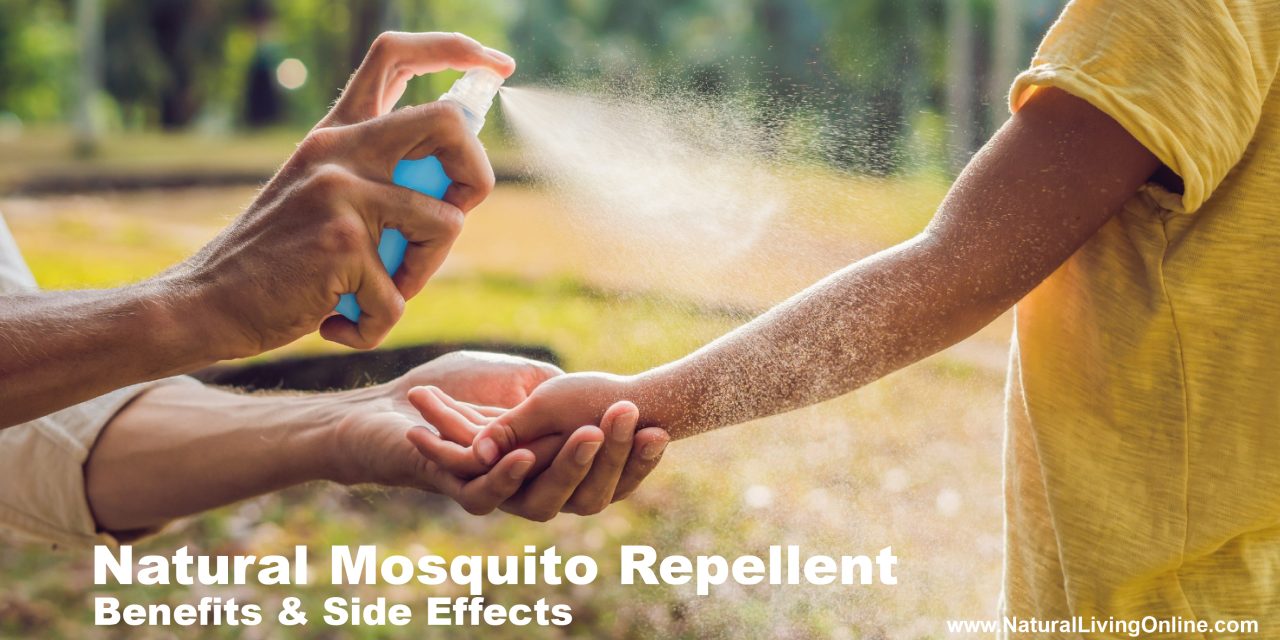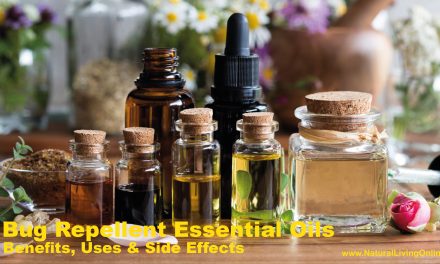With the arrival of warmer weather, the buzz of mosquitoes is not far behind, and finding effective means to repel these pests becomes a priority for outdoor enthusiasts and health-conscious individuals alike. Natural mosquito repellents are an attractive alternative to their chemical-laden counterparts, offering a way to avoid bites without the use of potentially harmful substances. These repellents, often made from ingredients found in any household, are not only safe but also environmentally friendly, making them a preferred choice for many.
The efficacy of DIY mosquito repellents is rooted in natural substances that have been recognized for their repelling properties. Essential oils, common kitchen ingredients, and certain herbs are known to be particularly effective. These natural solutions not only prevent mosquitoes from spoiling outdoor activities but also provide peace of mind by reducing the risk of mosquito-borne illnesses. By creating and using DIY repellents, individuals can tailor solutions to their preferences and needs, ensuring protection that is both personal and practical.
Key Takeaways
- Natural mosquito repellents offer a safer, environmentally friendly alternative to commercial products.
- Essential oils and common household ingredients can be used to create effective DIY mosquito repellents.
- Personalizing repellent solutions enhances their effectiveness and suitability for individual use.
Understanding Mosquito Repellents
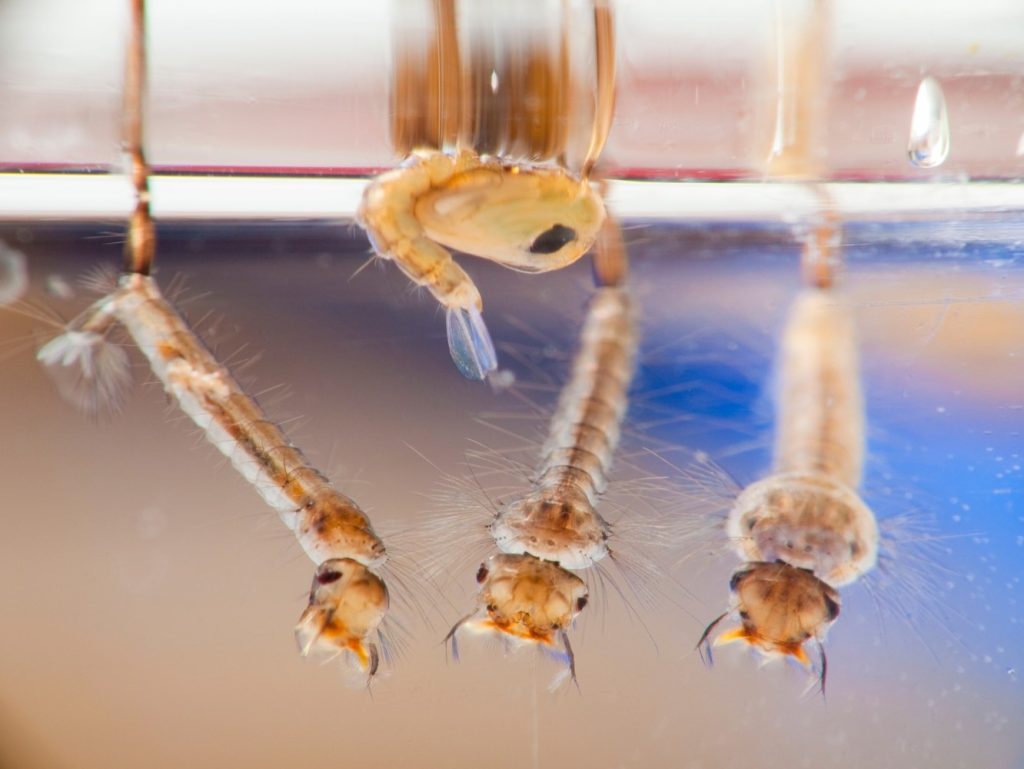
Effective mosquito repellents are critical for preventing bites and the diseases they may carry. They function by blocking the insect’s ability to detect humans, which is essential for reducing the risk of mosquito-borne infections.
The Basics of Mosquito Attraction
Mosquitoes are attracted to humans due to a combination of factors such as carbon dioxide, body odors, and heat. The process of finding a host is largely olfactory; mosquitoes have receptors that detect these cues from a distance. Once a potential host is identified, visual and thermal cues guide them closer. Understanding these attractions helps in formulating repellents that obstruct these sensory signals.
- Carbon dioxide: Every breath exhaled by humans.
- Body odors: Result from the complex mix of compounds on skin.
- Heat: Warm blooded mammals emit heat, which mosquitoes detect.
Natural Vs. Chemical Repellents
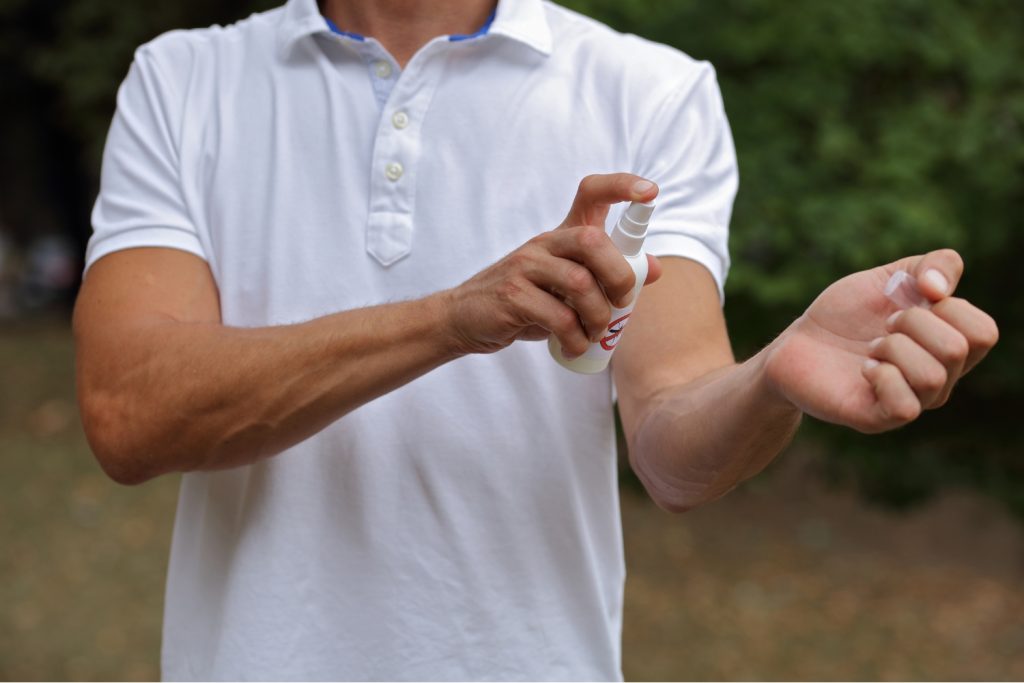
Insect repellents can be broadly categorized into two groups: chemical and natural.
Chemical repellents, such as those containing DEET (N,N-diethyl-meta-toluamide), are widely used and recognized for their effectiveness. DEET has a strong track record of repelling mosquitoes and is recommended by health authorities for protection against mosquito-borne diseases. Its mode of action involves confusing mosquitoes’ odor receptors, masking the smells that attract them to humans.
- DEET: A powerful and widely used chemical repellent.
In contrast, natural repellents utilize ingredients derived from plants and other naturally occurring substances. These may include essential oils like citronella, eucalyptus, and lavender. While the efficacy of natural ingredients can vary, they offer an alternative for those seeking repellents made from renewable sources.
- Natural Ingredients: Essential oils and plant extracts.
- Effectiveness: Can vary but offers a chemical-free choice.
By understanding the mechanics of mosquito attraction and the different types of repellents available, individuals can make more informed decisions about their personal mosquito defense strategies.
Essential Oils as Repellents
Essential oils are widely recognized for their ability to repel mosquitoes naturally. They offer a range of volatile compounds that tend to be aversive to these pests, while also being appealing to human senses.
Most Effective Essential Oils
Certain essential oils are particularly noted for their mosquito-repelling capabilities. These include:
- Lemon Eucalyptus Oil: A top choice for natural protection, studies have indicated its efficacy against mosquitoes.
- Citronella: Often used in outdoor candles, this oil is a well-known repellent against mosquitoes.
- Tea Tree Oil: Known for its broad spectrum of antimicrobial activities, it also has properties that can repel insects.
- Lavender Essential Oil: Beyond its calming scent, it can ward off mosquitoes.
- Peppermint Oil: Not only does it have a cooling effect on the skin, but it also repels mosquitoes.
Blending Oils for Enhanced Efficacy
By blending essential oils, one can create potent synergies that improve the repellent effect. A common blend includes:
- 10 drops Lemon Eucalyptus Oil
- 8 drops Tea Tree Oil
- 8 drops Lavender Oil
- 8 drops Rosemary Essential Oil
Mix these in a spray bottle with water or a carrier oil for a homemade repellent solution. Adding Lemongrass Oil with its strong citrus scent can also increase repellent action against mosquitoes.
Safety Precautions for Using Essential Oils
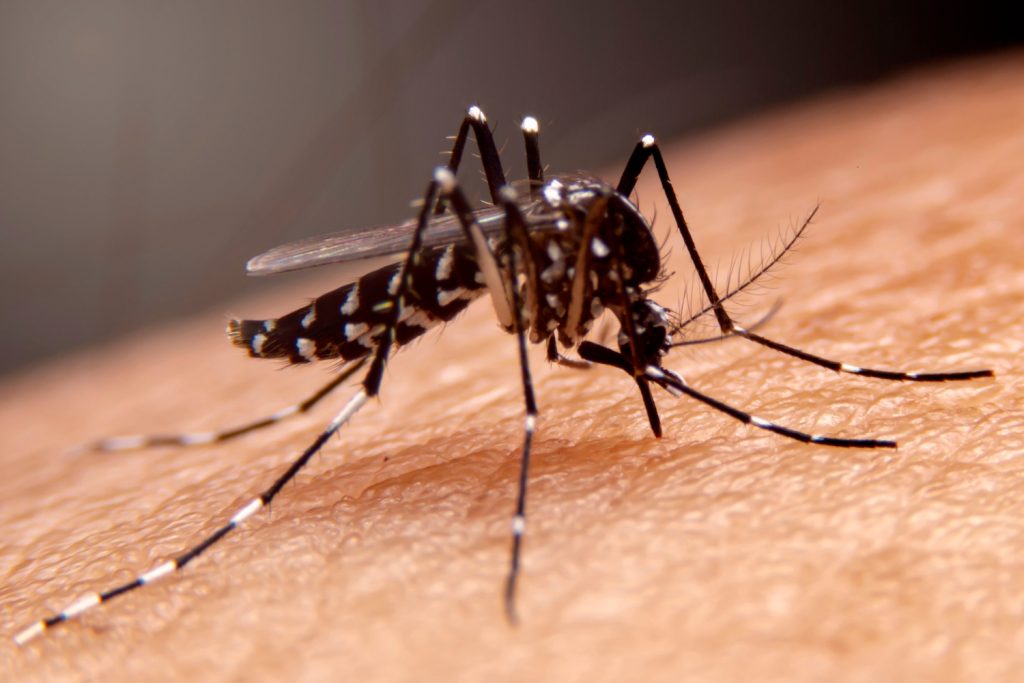
While essential oils are natural, they must be used with caution to avoid skin irritation or other adverse reactions.
For Topical Application:
- Always dilute essential oils with a carrier oil.
- Perform a patch test to check for allergic reactions.
- Be wary of using certain oils on children; for instance, Tea Tree and Peppermint Oil are recommended in lower concentrations for young skin.
General Safety:
- Never ingest essential oils.
- Keep oils away from eyes and mucous membranes.
- Store essential oils out of reach of children and pets.
Homemade Mosquito Repellent Recipes
Creating your own mosquito repellent is a practical and natural way to keep pesky mosquitoes away. These recipes use a variety of ingredients like essential oils and household items to produce effective repellents.
Oil-Based Blends
For those preferring a more concentrated repellent, oil-based blends can be powerful. A popular choice is mixing neem oil and coconut oil in equal parts. Neem oil is known for its insecticidal properties, making it a strong defense against mosquitoes, while coconut oil serves as a skin-friendly carrier.
- Lemon Eucalyptus Blend: A blend of 10 drops of lemon eucalyptus oil with 1 ounce of jojoba oil can provide a refreshing scent and repel mosquitoes effectively.
- Rosemary and Vanilla: Combining rosemary essential oil with a few drops of vanilla extract in a base of witch hazel creates a soothing repellent.
Spray Bottle Mixtures
For easy application, repellents in spray bottles are ideal. Starting with either witch hazel or vinegar as a base, one can add water and essential oils for a natural bug spray. Spray bottle mixtures are perfect for covering larger areas of skin or clothing.
- Witch Hazel & Lemon Mixture: Mix equal parts of witch hazel and water, add 40 drops of lemon essential oil, and shake well.
- Apple Cider Vinegar Formula: Apple cider vinegar can be diluted with water and enhanced with essential oils like citrus or peppermint for a quick spray.
Lotion and Balm Formulas
For those with sensitive skin, lotion and balm formulas may be preferable. They provide a moisturizing effect along with mosquito repellent properties.
- Neem and Coconut Balm: Mix neem oil with coconut oil and beeswax to create a natural bug repellent balm that can be applied directly to the skin.
- Vinegar and Vanilla Lotion: Use apple cider vinegar, water, and vanilla extract to create a hydrating lotion that keeps mosquitoes at bay.
Each recipe utilizes natural ingredients and avoids the chemicals found in many commercial repellents. They can be tailored to individual preferences and sensitivities, offering a homemade solution for mosquito protection.
Non-Oil Mosquito Repelling Solutions
Mosquito repellents don’t always have to rely on oils or synthetic chemicals. Innovative solutions include the strategic use of certain plants, creating physical barriers, and adopting environmental practices.
Plant-Based Alternatives
Plants: A variety of plants act as natural deterrents for mosquitoes. Incorporating Lemon Eucalyptus, Citronella, Sage, and other herbs into your garden can help fend off these pests. Lemon Eucalyptus is particularly noted for its efficacy, and while it does have essential oil components, the plant itself can be used directly without the need to extract oils.
Kitchen Ingredients: Common kitchen staples like garlic and vanilla can be utilized in natural bug repellent recipes. Garlic can be infused in water to create a spray, while a mixture of vanilla extract and lemon juice offers a homemade repellent option.
Physical Barrier Methods
Clothing: Wearing long-sleeved shirts and pants in light colors during hot summer months can serve as a physical shield against mosquito bites.
Screens and Nets: Ensure windows and doors have tight-fitting screens to keep mosquitoes out. Mosquito nets around beds are especially effective during dawn and dusk when mosquitoes are most active.
Preventive Environmental Practices
Water Management: Mosquitoes breed in standing water, so it’s essential to regularly empty containers like gutters and birdbaths on your property to prevent their population from booming.
Traps and Maintenance: Using mosquito traps can reduce their numbers significantly. Simultaneously, keeping your yard maintained by trimming vegetation and mowing the lawn will reduce the areas where mosquitoes like to rest.
Ensuring the Effectiveness of DIY Repellents
Effective use and maintenance of DIY natural mosquito repellents is essential to maximize their efficacy and provide reliable protection against mosquito-related diseases such as West Nile Virus, Zika Virus, and Malaria.
Application and Reapplication
For homemade repellents to be effective, they should be applied generously and evenly to exposed skin. Ingredients such as eucalyptus and cedarwood can deter mosquitoes, but they evaporate quicker than synthetic chemicals and therefore require more frequent reapplication. Depending on the activity and environmental conditions, reapplication every two hours is recommended. Moreover, lotions with beeswax as a base may have a longer-lasting effect on the skin compared to sprays.
Storage and Shelf Life
DIY natural mosquito repellents made with organic ingredients lack the preservatives found in commercial products, leading to a shorter shelf life. To preserve their potency, these repellents should be stored in cool, dark places and ideally in airtight containers to slow down the degradation of the oils. Repellents containing essential oils should be used within one year of creation, after which their efficacy can significantly decrease.
Considerations for Sensitive Skin
When making DIY repellents, it is crucial to consider individuals with sensitive skin. The concentration of essential oils should be lower for these users, and a patch test is advisable to prevent skin irritation. Ingredients like castor oil can serve as natural emollients and may also add protective qualities against mosquito bites and bug bites. However, caution is needed because certain essential oils may trigger allergic reactions or skin sensitivities upon sun exposure.
Choosing the Right Repellent for You
Finding the right natural mosquito repellent involves understanding personal needs, recognizing potential skin reactions, and considering the impact of scents.
Assessment of Personal Needs
Individuals seeking to fend off mosquitoes should consider their environment when selecting a repellent. In humid areas, a beeswax-based repellent might provide a more resistant barrier to pests. Components like citronella and lemon are well-regarded for their efficacy, and are often found in products designed for outdoor use. For individuals with drier skin or living in less humid climates, a repellent featuring moisturizing ingredients such as vegetable glycerin may be beneficial, ensuring skin remains hydrated while also discouraging mosquito activity.
Testing for Allergies and Skin Reactions
Before fully embracing any DIY repellent, it’s crucial to test for allergies. Apply a small amount of the product, which may contain lavender, bergamot, or peppermint essential oils, to a discreet patch of skin and monitor for any adverse reactions. If an individual is prone to sensitive skin, selecting repellents with milder essential oils, such as lavender, or using a base like castor oil, which is less likely to irritate, may be appropriate choices.
The Role of Scents in Repellency
Scents play a considerable role in the effectiveness of a repellent. Citronella is widely acknowledged for its mosquito-repelling properties. Yet, it’s the combination of scents that can make a difference; the addition of lemon or peppermint to citronella can enhance the repellent’s ability to mask odors that attract mosquitoes. DIY practitioners might also consider incorporating herb repellents such as lemongrass or lavender. When choosing an essential oil blend, one should opt for natural, palpable odors that are both pleasant to humans and deterrent to mosquitoes.
Frequently Asked Questions
What are the top DIY natural mosquito repellent recipes for use on the skin?
Several effective natural mosquito repellent recipes for the skin include a mixture of essential oils and carrier oils. One popular recipe suggests combining coconut oil with peppermint oil for a soothing and mosquito-repelling skin application.
How can you create an effective mosquito repellent using vinegar?
An effective mosquito repellent can be made using vinegar by creating a solution of equal parts water and vinegar, with the addition of a few drops of essential oils such as eucalyptus or lemon oil. This mixture is then sprayed onto the skin or around outdoor areas to deter mosquitoes.
What are the simplest homemade mosquito repellent solutions you can make?
The simplest homemade mosquito repellents can be crafted with minimal ingredients such as witch hazel and essential oils. A basic repellent may consist of witch hazel, water, and a choice of essential oils like citronella or tea tree oil mixed in a spray bottle.
Is it possible to concoct a homemade mosquito repellent that produces smoke?
Yes, it is possible to create a homemade mosquito repellent that produces smoke. This can be done by burning natural substances such as dried herbs and citronella in a safe and contained manner to keep mosquitoes at bay through the scent and smoke produced.
Which natural ingredients are known to be the best for repelling mosquitoes?
Some of the best natural ingredients for repelling mosquitoes include citronella, eucalyptus, tea tree oil, and lemon balm. These can be used in various forms such as oils, lotions, or incense to provide a protective barrier against mosquitoes.
How can you make a mosquito repellent for indoor use that’s natural and safe?
To make a natural and safe mosquito repellent for indoor use, one can diffuse essential oils like lavender or peppermint in the home. Alternatively, homemade candles incorporating citronella or other mosquito-repelling essential oils can also be highly effective.
References:
Essential Oils as Repellents against Arthropods
This website does not provide medical advice.
All information provided on this website, and on associated social media networks, including but not limited to texts, images, and numbers are for general information purpose only. It is not intended as medical advice and it does not include all possible precautions, side effects, or interactions that may occur. Neither NaturalLivingOnline.com nor its author/founder take responsibility for how you use this information. Statements contained on NaturalLivingOnline.com have not been evaluated by the FDA. You should conduct thorough research via multiple sources and consult your physician or qualified doctor before using any essential oil or herbal remedy. Information on NaturalLivingOnline.com must not be relied upon for medical, legal, financial or other decisions.

